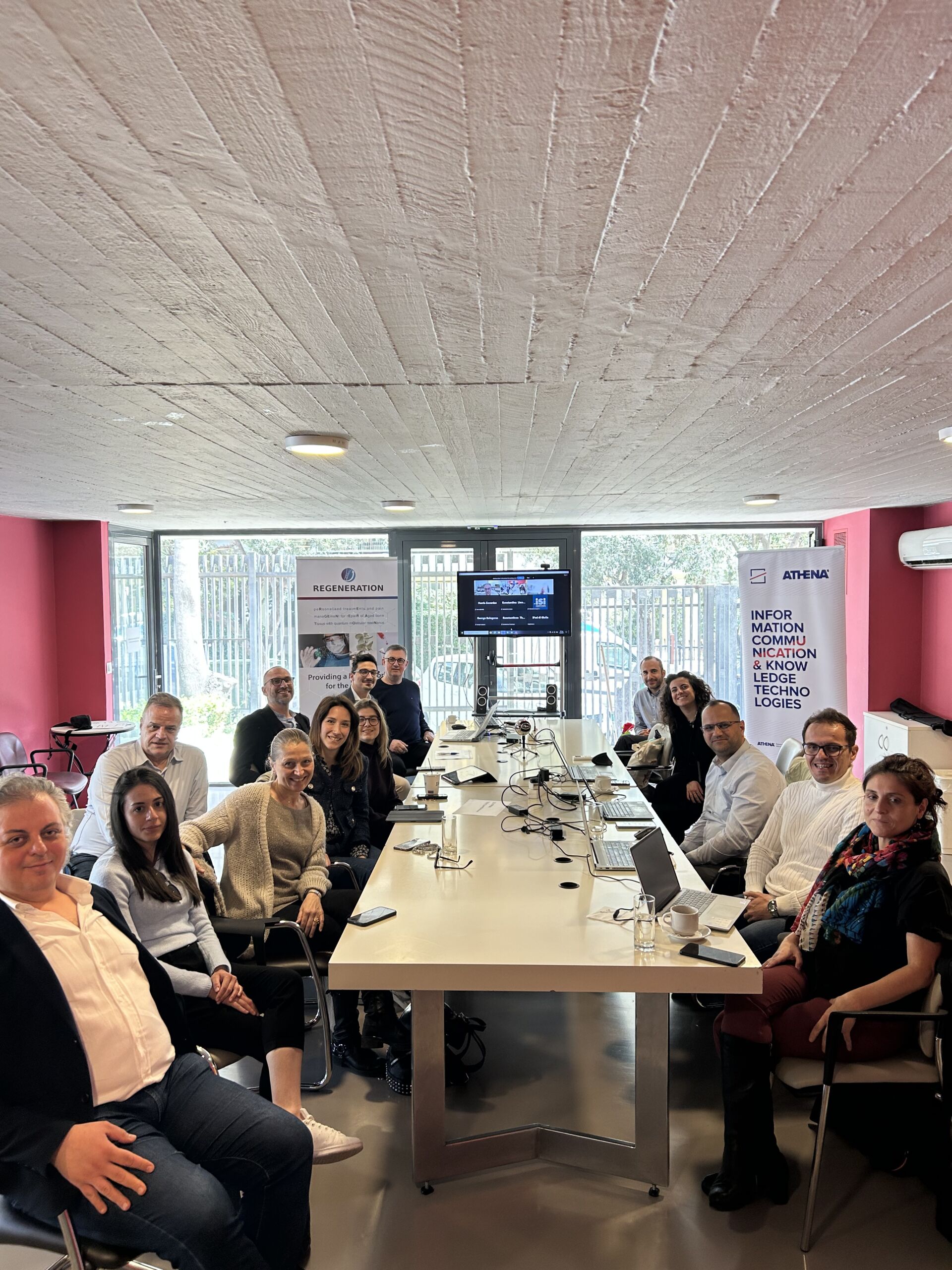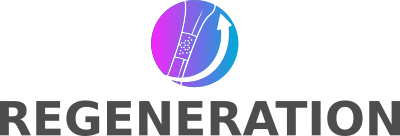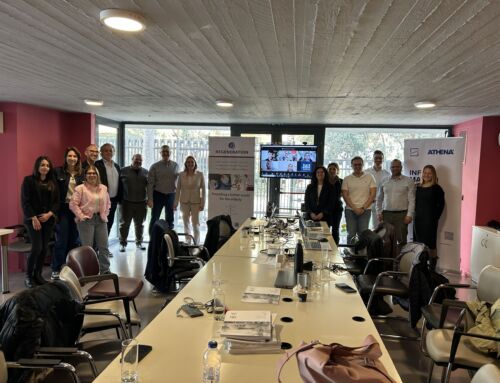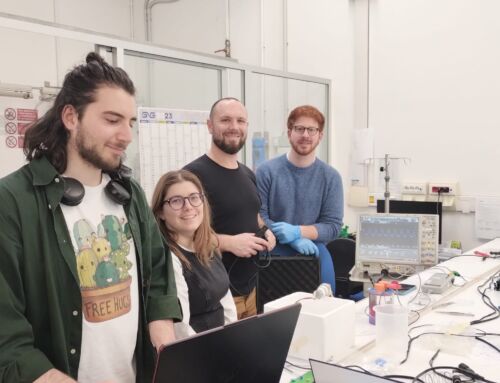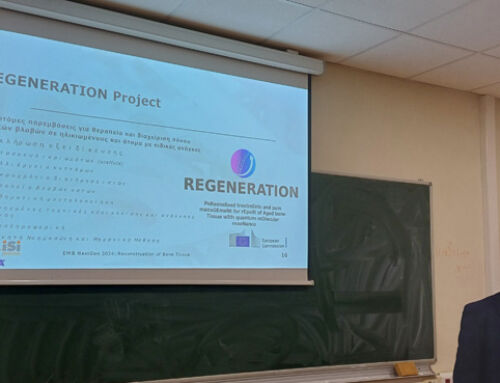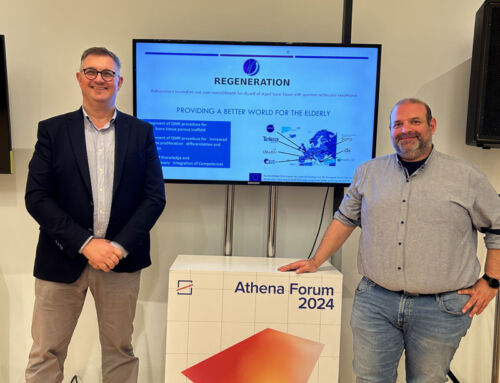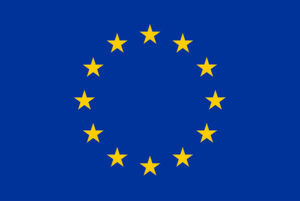A successful Transfer of Knowledge has been organized by Regeneration project at the premises of ATHENA Research Center in Athens, Greece on April 1, 2025. The seminar brought together experts in biomedical engineering, tissue regeneration, and 3D bioprinting to discuss cutting-edge advancements in regenerative medicine. The seminar highlighted innovative platforms for 3D cell culture, dynamic bioreactor systems, AI-driven scaffold design, and quantum molecular resonance (QMR) technology, offering transformative potential for bone regeneration, drug discovery, and personalized medicine.
Mario Ledda of CNR, Italy talked about “Innovative Platforms for 3D Cell Growth: Advantages and Applications in Biomedicine”, concluding that the potential of 3D cell culture in biomedicine is extremely significant. Continued innovation in this field is expected to drive breakthroughs in regenerative therapies and precision medicine.
Giuseppe Falvo D’Urso Labate of Cellex, Italy talked about “Optimizing Bone Tissue Engineering with Dynamic Culture Systems”, concluding that dynamic culture is the future of bone tissue engineering—while mimicking the natural bone environment is key to successful regeneration.
Vassileios Dracopoulos of H-CAM SA, Greece referred to “3D Printing and Health: A Dynamic Innovation Relationship” emphasizing that 3D bioprinting is revolutionizing medicine—moving from static implants to biologically interactive, and offering patient-specific solutions.
Konstantinos Risvas of ATHENA-ISI presented ScaffoldBuilder: A Software Tool for Bone Scaffold Modeling, concluding that computational modeling accelerates scaffold design, ensuring biomechanical compatibility before fabrication.
Konstantinos Theophilatos of InSyBio, Greece discussed about “Bioreactor Design Using Machine Learning & Heuristic Optimization” and concluded that AI-driven bioreactor optimization is a game-changer—bridging computational modeling with real-world tissue engineering.
Finally, Stefano Tedesco of TELEA, Italy discussed Quantum Molecular Resonance (QMR) in Bone Regeneration & Anti-Cancer Therapy and emphasized on QMR technology potential offering a dual approach—regenerating bone while potentially fighting cancer through bioelectric stimulation.
The Transfer of Knowledge showcased groundbreaking innovations at the intersection of biomaterials, AI, and regenerative medicine. It was attended by about 25 persons physical and on line. Industry-academia collaboration promoted in the context of the project drives towards the direction of accelerating translational research in the field.
